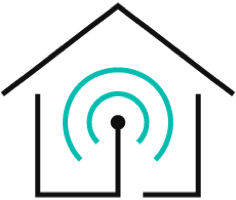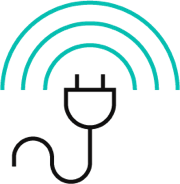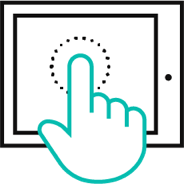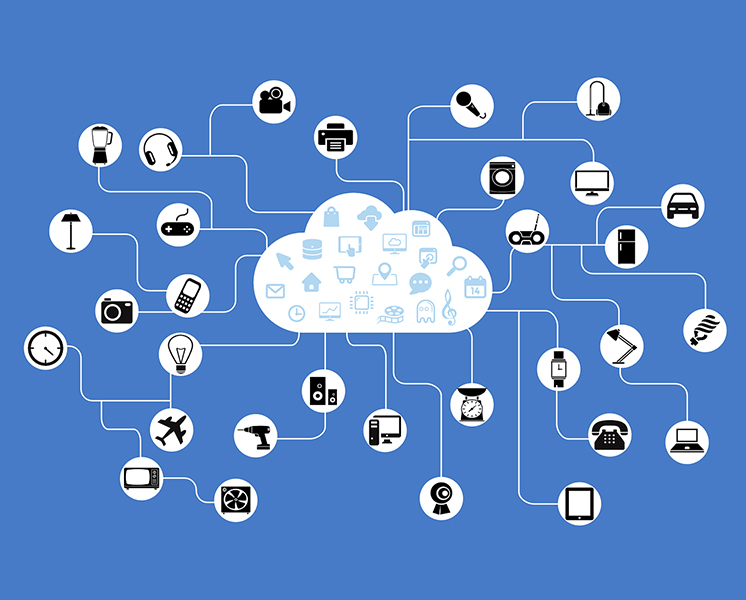Decades ago, it would have been almost impossible to convince a person that soon they could send an email, crunch large sums, and send HD pictures and videos from a metal glass sandwich that could be in their hands. Later, it became a smartphone, and the rest is history.
Now, let us take another example - a smart home hub.
Imagine a homeowner who wants to control all the smart devices and fixtures of his house but does not have central control over them. Or a hotel manager who cannot knock on the door of each room every time an idle light or fan is still on.
There are two angles to this dilemma. First, we need to convince that this technology exists now that can get the control back to the rightful owner. Second, it is reasonably affordable and has the potential to yield long-term benefits in terms of wise energy consumption.
In this post, we will discuss in detail:
- What is a smart home hub
- Different protocols in smart home hubs
- Do you really need a smart home hub
- The best Zigbee and Z-Wave smart home hub smart home hub
So, let's dive deep into the sea of the smart home hub!
What is a smart home hub?
A smart home hub is a piece of equipment that connects all of your smart gadgets, such as light bulbs, locks, thermostats, and more, to each other. This equipment is typically located in the middle of an intelligent house.
Controlling your smart home devices from a centralized place, such as an app on your smartphone or a voice assistant, is made possible by a smart home hub. This can make it simpler to establish and carry out routines that include using more than one product.

To put it another way, a hub acts as your home automation system's central processing unit and connects all your various devices. At this point, the vast majority of smart home gadgets, whatever the protocol they employ, are controllable using their app; additionally, if they require a bridge or hub, the device will typically come with one of these components.
One of the benefits of utilizing a distinct hub that serves several purposes is the ability to command everything using a single application. Still, for many people, it can be considered more of a luxury than a must.
>> Find an ideal ZigBee hub to link your smart home devices
Protocols In Smart Home Hubs

Z-Wave
The Z-Wave protocol is among the more extensively used solutions in today's home automation and home security sectors because of its improved range. This is because the Z-Wave protocol boasts a fantastic roster of more than 3,000 smart home devices that are currently available.
Because Z-Wave is fully wireless and runs at a low frequency, it does not interfere with Wi-Fi signals, mobile phones, or microwave ovens. Z-Wave is capable of generating a mesh network that enables calls to hop from one device to another, and each network can accommodate up to 232 individual devices.
These include door and window sensors, door locks, garage door openers, thermostats, and more. Smart plugs are also included in this category.
Zigbee
Zigbee is a wireless system that, like Z-Wave, establishes a mesh network in which devices can communicate signals to each other. However, unlike Z-Wave, Zigbee does not provide the same kind of extended range that Z-Wave does. What's the difference between Zigbee and Z-Wave?
Although the Zigbee protocol operates at a higher frequency and is therefore susceptible to interference from 2.4GHz Wi-Fi and other household devices, it is typically faster than Z-Wave. It can support thousands of devices on a single network.
However, because it operates at a higher frequency, it is susceptible to interference from higher frequency devices. More than 2,500 different Zigbee devices are now on the market.
These devices range from lights and motion sensors to plugs and sprinkler controllers.
Bluetooth
The Bluetooth wireless technology is becoming increasingly used in electronic devices, such as door locks and lighting systems, that will be locally controlled by a mobile application.
It uses less power than Wi-Fi, but because of its short range, you cannot manage these devices remotely (when they are outside of Bluetooth range) without using a hub. Although it saves more energy than traditional routes, Wi-Fi is still more popular.
Bluetooth gadgets are simple to set up, and the technology, similar to that of Wi-Fi, is present in almost all mobile devices.
Who Needs A Smart Home Hub & Who Don't
It is hard to think about a homeowner with all the smart devices around who would still prefer to haggle with multiple interfaces.
Still, for the spirit of the discussion, the section below will look at who would need a smart home hub and who wouldn't.
Those Who Do
Depending on the architecture of your home, a smart home hub can establish connections with devices located up to and even more than 100 feet away. If you live in a more prominent place, installing an antenna in a desirable location, such as close to your router, will allow your smart home hub to function as a "home base" for your electronic gadgets.
This centralization can also bring your gadgets together, even if they come from different brands and have different connectivity possibilities. For instance, if you have Philips Hue lighting, BOSCH security cameras, August smart locks, and Google speakers, a smart home hub will assist in making it possible for all of these devices to communicate with one another.
In many cases, you can even set up your items straight through the software that comes packaged with a smart home hub. The mobile app also generates a dashboard for all the smart home gadgets in your home, allowing you to monitor their status at any time, regardless of whether or not you are present.
The dashboard allows you to make precise adjustments, such as modifying the temperature of your smart thermostat or changing the color of your smart lights.
You may spend a few more seconds going between apps to make adjustments if you do not have a hub. A few seconds may not seem like much here and there, but they might add up to a significant amount if you live in a busy household with a large number of rooms and devices.
Those Who Don't
A smart home hub could not be a good purchase if your living space is on the compact side and you only have a few connected gadgets. The same is true if you are not interested in programming routines for your smart home and if you do not mind using a variety of apps.
The Best Hub For Smart Home - Evvr Hub!
Evvr does not need any introduction to the best home automation solutions. Its new line of controllers, including a smart home hub, complies with Zigbee and Z-Wave protocols and allows users to control multiple devices with a single tap on the proprietary interface.
With a vast network of authorized distributors and friendly customer support, your smart home will always root for you! If you want to know more details about Evvr, please get in touch with us!















